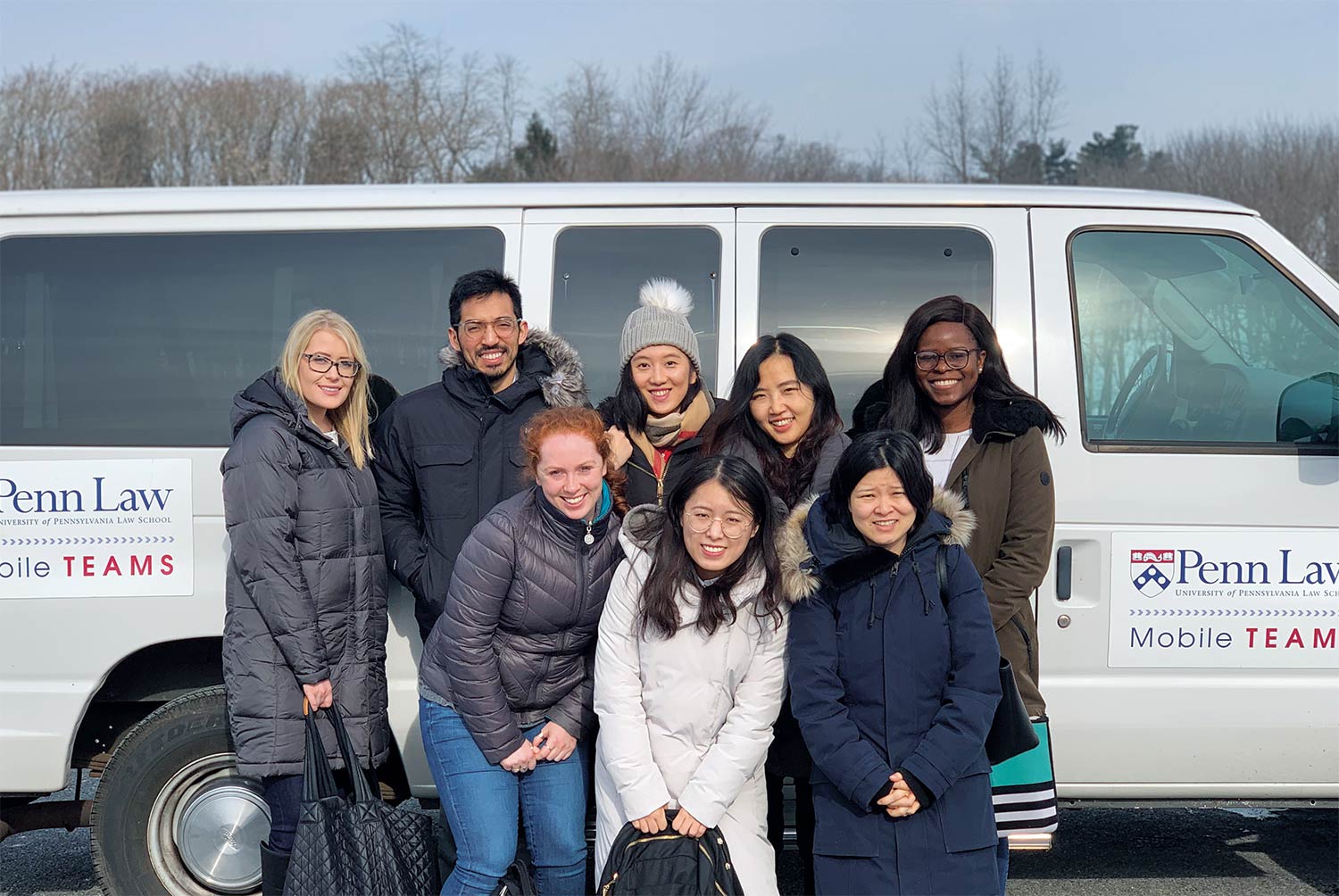The idea, said TPIC Staff Attorney Sarah Egoville, was to extend beyond Philadelphia, where many service opportunities tend to concentrate. “The legal needs in rural counties are dire, and the access to legal services can be much more limited,” said Egoville, who runs Mobile TEAMS.
Inevitably, COVID-19 has changed what those expeditions around the state look like, leading Mobile Teams to explore situations that students can address remotely by phone. For example, a partnership with MidPenn Legal Services enabled students to work with its low-income taxpayer clinic to help people over the phone.
This spring, the pandemic presented unexpected pro bono opportunities: Thirty-five Mobile TEAMS students staffed the Philadelphia Legal Assistance (PLA) temporary unemployment compensation hotline to help those affected by coronavirus-related layoffs.
The hotline was the brainchild of PLA’s Julia Simon-Mishel L’13, who saw an enormous unmet need when thousands lost their jobs as the state shut down. The project was a true Law School effort: Jonathan Pyle L’02, PLA’s contract performance officer, used his tech savvy to build the hotline while Rachel Miller L’12 assisted in the orchestration and training of volunteers.

A Spring 2019 Mobile TEAMS crew gears up to offer legal aid in rural parts of Pennsylvania.

Multilingual Penn Law students were instrumental in bridging language divides, she said. “We had a ton of Mandarin speakers call, so Sarah (Egoville) recruited LLMs and other international students. It was wildly successful.”
The hotline operated from early April through mid-August with volunteers working two-hour shifts during its weekday schedule of four hours per day. “It was a wild time, super busy,” Miller said, adding that students addressed queries statewide.
By mid-summer, Egoville said Mobile TEAMS students had helped more than 600 of 1200 callers. “Through that initiative alone, we reached 30 counties,” she said. By the time the hotline was closed because of tapering demand, it had logged almost 1900 calls and PLA had filed close to 200 applications.
Before the pandemic, Egoville and participating students piled into Mobile TEAMS’ 15-seater van and traveled from Pottstown and York to Lebanon and Gettysburg. Several projects involved immigration issues. Egoville said multilingual students, particularly international LLM students, have been invaluable in helping Mobile TEAMS. “They are amazing in their ability to work in multiple languages while assisting individuals in need,” she said.
One such student was Natalia Guerrero Vergel LLM’20, a Colombia native and fluent Spanish-speaker who helped conduct interviews and screenings for people applying for American visas and citizenship.
Working with Egoville and Mobile TEAMS participants, though, relieved her anxieties. “I was really determined to get that ground experience in the United States, and for me, from my personal point of view, I can’t overstate how helpful it was to get real work done,” she said.
Egoville said she’s hopeful about continuing Mobile TEAMS’ mission, even if the operation is less mobile. Several students have been successfully involved in mobile home tax appeals in partnership with the United Way of Chester County, and she hopes students can continue that work remotely.
Vergel, who now works as a tax lawyer in Colombia, said she appreciated the chance to serve with Mobile TEAMS at Citizenship Day events and an immigration law project at the Mexican consulate.
“When I went to law school, I went with the idea to give back to the community,” she said. “It was really good work to do in the United States and learn about US law as well.”